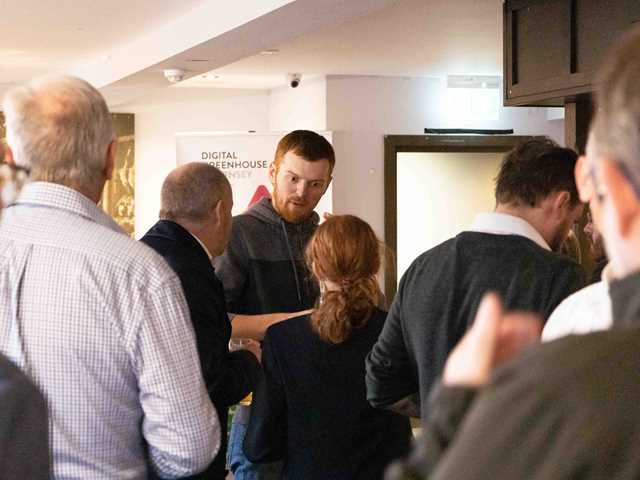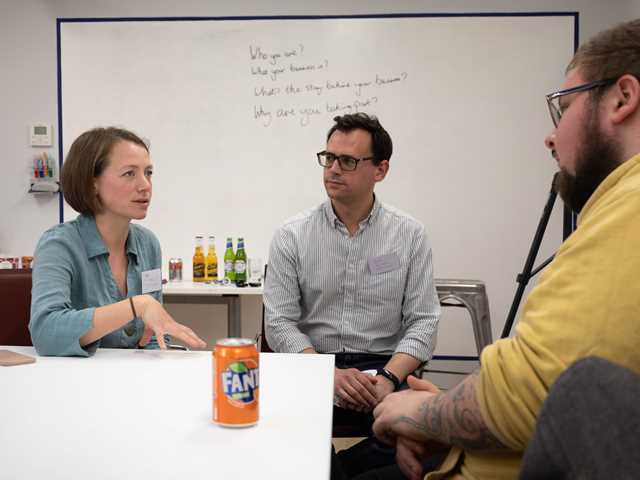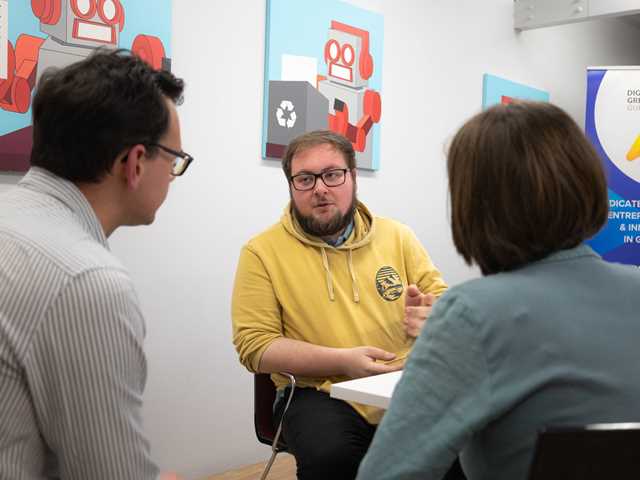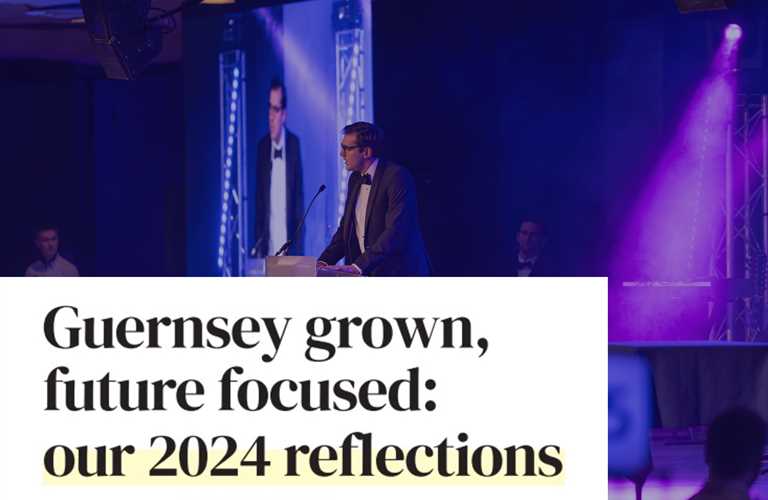Networking with ease, 4 tips to boost your presence and impact
This article was inspired by a talk at Future Rewired 2023.






In this world, networking has always been and will always be a necessity - after all human connection is something we all need, whether we are adding to our support system or finding new connections to better ourselves and our ventures.
According to HBR, research shows that professional networks lead to more job and business opportunities, broader and deeper knowledge, improved capacity to innovate, faster advancement, and greater status and authority. Building and nurturing professional relationships also improves the quality of work and increases job satisfaction.
To get you in the mood to network and outline some of the key benefits we dive into 4 insights from PwC's Sarah Hollingsworth from her networking workshop at Future Rewired to boost your presence and impact.
First, reframe your mind by focusing on learning or a higher purpose!
Most people have a dominant motivational focus, referred to as either a 'promotion' or a 'prevention' mindset. Those in the promotion category think primarily about growth, advancement and accomplishments that networking can bring them, with feelings akin to excitement and curiosity - while those in the prevention category see it as an obligation or necessary evil, that feels inauthentic.
Thankfully it's possible to shift our mindsets, as networking is a great opportunity for discovery and learning rather than a chore! Focus on the positives, how it's going to help you boost the knowledge and skills that are needed in your job, and an opportunity for new ideas, experiences and career opportunities. Reframing the outcome like this expresses to yourself that networking is a benefit to you or your business, which is something we all want to work toward. With this more positive purpose, the work activity becomes more attractive and can feel less inauthentic.
Still feeling nervous? Sarah recommends putting on your most upbeat music, picking an outfit that makes you feel good and striking a few power poses in front of the mirror beforehand to take the edge off!
Secondly, practice active listening
Listening is an important skill in all aspects of life but especially important in networking - when we show we're really listening, it's much more rewarding for both the person talking to you and yourself. So, let's go over some basics.
Body language is important. Not only eye contact but also posture - avoid crossed arms, or turning/ covering your heart to the person you are networking with, these actions send subliminal signals that can make you look closed or defensive. Leaning slightly forward can also be a sign of an engaged listener. Added occasional nods and vocal cues that occur naturally during an engaging conversation can also help.
Limit the time you speak by valuing the speaker. Being interrupted is frustrating for the other person – it can give the impression that you think you’re more important, or that you don’t have time for what they have to say. If you are naturally a quicker thinker or speaker, force yourself to slow down so that the other person can express themselves. Remember, a pause or a few seconds of silence doesn’t mean that you have to jump in. Letting the other person speak will make it easier for you to understand their message, too. Sometimes interruptions in response to something that's been said can be distracting if it means the conversation gets sidetracked from what they were trying to tell you about. If this does happen, steer the conversation back to “So, you were telling me about…”.
Paraphrase and summarise - Sometimes called reflecting, this is repeating what has been said to show that you understand it. This may seem awkward at first, but really shows you’ve been paying attention, and allows the speaker to correct you if you haven’t understood correctly. This is also a helpful tool for remembering names, which Sarah admits, most people are pretty poor at! Repeating your networking partner's name two or three times, for example, "Tom. Nice to meet you, Tom!" will settle it in your memory and show your genuine interest in the other person.
Then, think about what you can give instead of what you can take
At any level of an organisation, we have something to offer to our counterparts at a networking event. Even when you do not share an interest with someone you may know someone who does, someone who could benefit your networking partner in some way or another. Gratitude, recognition and a boost to reputation are also offerings we can give others when connecting via a networking event especially when we are at a level where we might not have the power or resources that higher-ups may have. For example, if you were to introduce a colleague to your networking partner and add in a reputation boost such as, "This is Elaine, she has been my mentor for 3 years and I don't think I would be where I am today without her insights and support." Even a kind word to others about the connections you made at your networking event can help support others in an indirect way.
Here's the thing, giving often feels a lot better than getting - and can totally change your outlook when entering a networking event. When you think of 'How can I support someone here' you'll be reinforcing the idea of worth behind these events rather than possibly of feeling a bit inauthentic while trying to gleam information or professional connections. And the best bit? When you are giving you are also making worthwhile genuine connections and making a positive impact!
Lastly, ask the right questions, in the right way
The key to a productive conversation in any situation is asking the right questions that keep the conversation going. There are many different kinds of questions that are really useful during networking sessions, such as:
Probing questions, these are open-ended questions that bring greater insight into what someone has just told you, encouraging deep thought about a specific topic. This may sound like, "What makes you most excited these days?" "What do you see as the coming challenges and opportunities in your field?" "What sort of impact do you think this will have?"
Open questions generally encourage wider discussion and elaboration. They are useful for critical or creative discussion, and finding out more information about a person. Typically beginning with the following words: why, how, what, describe, tell me about.., or what do you think about..
They might sound like something along the lines of: "What are you most proud of accomplishing?" "What did you do next?" "How did you overcome that situation". Use open-ended questions as follow-ups for other questions.
Closed questions are good for warming up group discussions, getting a quick answer or confirming that you’ve understood something correctly. They’re popular as icebreaker questions in group situations because they’re easy to answer, but might stunt the flow of conversation, leading away from an engaging discussion.
In conclusion, networking should be considered a selfless act - find a way in which you can connect and enable those around you and in turn build an organic network of peers and support systems.
Still feeling anxious about introducing yourself? Sarah suggests practicing by recording a short video of yourself 'greeting and introducing yourself" as if you were at a networking event, watching it back and then tweaking anything that is not to your liking (ie posture or body language.) Practicing like this may feel awkward at first but with time will become second nature!


